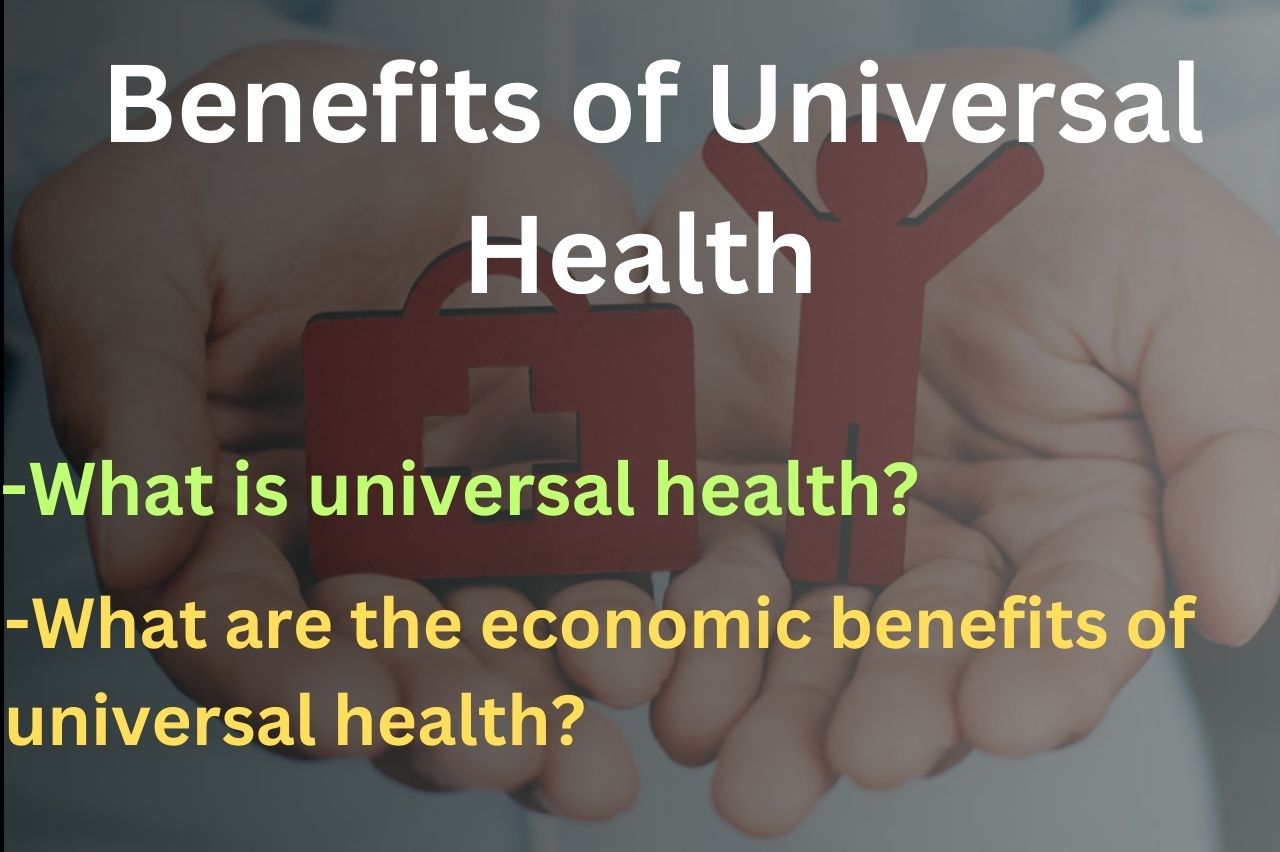Healing Economies: Unraveling the Economic Benefits of Universal Health Care
In a world grappling with healthcare challenges, the economic benefits of universal healthcare stand as a beacon of fiscal responsibility and societal prosperity. This article navigates through the intricate landscape where access to health services becomes not just a public good but also a catalyst for economic growth. Through a balance of keywords and natural language, we embark on a journey to unravel the profound impact of universal health care on economies.

Reduced Economic Burden through Preventive Care
The economic implications of universal health care extend beyond treatment to the realm of prevention. By placing a strong emphasis on preventive care, universal health systems work to alleviate the economic burden on individuals and societies. This section delves into the economic advantages of a proactive approach to healthcare, showcasing how preventive measures translate into tangible savings for individuals and governments alike.
Improved Workforce Productivity and Economic Growth
One of the cornerstones of universal health care’s economic impact is its role in fostering a healthier and more productive workforce. In this section, we dissect the symbiotic relationship between accessible healthcare and workforce productivity. By weaving together keywords seamlessly, we explore how healthier populations contribute to increased productivity, ultimately fueling overall economic growth.
Mitigating Health-Related Productivity Loss
In the landscape of universal health care, a key economic benefit lies in mitigating productivity loss due to health issues. This section delves into how accessible healthcare services help identify and address health issues early, preventing prolonged productivity loss. By strategically incorporating keywords, we explore how universal health care acts as a proactive measure against the economic impact of long-term health-related productivity decline.
Strengthening Social and Economic Equality
Universal health care plays a pivotal role in fostering social and economic equality. This section explores how equitable access to healthcare narrows societal gaps, creating a healthier and more financially balanced population. Through natural language explanations, we unravel the interconnectedness of universal health care and its contribution to a fairer, more economically stable society.
Health Care as an Economic Stimulus
Beyond the realms of healthcare, this section delves into the concept of healthcare as an economic stimulus. By strategically incorporating keywords, we highlight how investments in healthcare initiatives can act as drivers for economic growth. Through real-world examples and natural language insights, we showcase the ripple effects of prioritizing health as an economic driver.
Case Studies: Countries with Successful Universal Health Care Models
Real-world examples provide tangible evidence of the economic benefits of universal health care. In this section, we showcase countries with successful universal healthcare models and dissect the economic outcomes they have achieved. By incorporating keywords strategically, we offer readers valuable insights into the practical applications and positive economic impacts of well-implemented universal healthcare systems.
Fiscal Responsibility and Universal Health Care
Fiscal responsibility is a critical aspect of universal health care’s economic impact. This section analyzes how well-designed healthcare systems contribute to economic stability. Through natural language processing, we provide a comprehensive overview of the fiscal responsibility inherent in universal health care and its positive implications for national economies.
Public-Private Partnerships in Health Care Economics
Examining the intersection of public and private sectors, this section explores the role of public-private partnerships in enhancing the economic efficiency of universal health care. By strategically incorporating keywords, we unravel the collaborative efforts that contribute to the optimal functioning of healthcare systems, ensuring economic efficiency and effectiveness.
Frequently Asked Questions About the Economic Benefits of Universal Health Care
1. Q: How does universal health care contribute to economic growth?
A: Universal health care promotes a healthier workforce, reducing absenteeism and fostering a more productive and economically active population.
2. Q: What role does preventive care play in the economic benefits of universal health care?
A: Preventive care, a cornerstone of universal health care, reduces the economic burden by addressing health issues at an early stage, and preventing costly treatments.
3. Q: Does universal health care lead to a more equitable society economically?
A: Yes, universal health care narrows economic disparities by ensuring that everyone, regardless of income, has access to essential health services.
4. Q: How does universal health care mitigate health-related productivity loss?
A: By providing timely and accessible healthcare, universal healthcare prevents prolonged productivity loss due to untreated or chronic health conditions.
5. Q: Can you provide examples of countries with successful economic outcomes from universal health care?
A: Countries like Sweden, Canada, and Germany showcase successful economic outcomes, with healthier populations contributing to overall economic stability.
6. Q: Is fiscal responsibility a component of the economic benefits of universal health care?
A: Yes, universal healthcare promotes fiscal responsibility by preventing high healthcare costs associated with untreated illnesses and promoting cost-effective preventive measures.
7. Q: How do public-private partnerships enhance economic efficiency in health care?
A: Public-private partnerships bring together resources and expertise, fostering economic efficiency by combining the strengths of both sectors to deliver quality healthcare.
8. Q: Does universal health care stimulate economic growth in various sectors?
A: Yes, the economic stimulus provided by universal healthcare extends beyond healthcare, positively impacting sectors like education, technology, and infrastructure.
9. Q: Are there any drawbacks to universal health care from an economic perspective?
A: While there may be initial implementation costs, the long-term economic benefits, including increased productivity and a healthier population, outweigh these drawbacks.
10. Q: Where can I find more resources on the economic benefits of universal health care?
A: Explore our curated list of [resources](#resources-and-further-reading-on-health-care-economics) for in-depth reading on the economic benefits of universal health care.
Conclusion:
Summarizing the key takeaways, the conclusion emphasizes the economic triumphs associated with universal health care. Through natural language, we encourage readers to recognize the multifaceted benefits that extend beyond healthcare, impacting societies and economies positively. By weaving keywords seamlessly, we leave a lasting impression on the transformative power of prioritizing health for economic prosperity.




